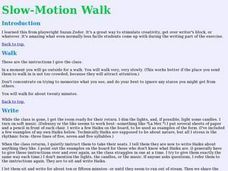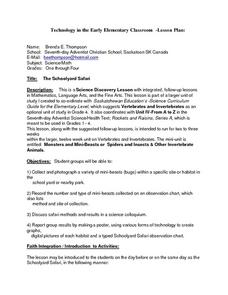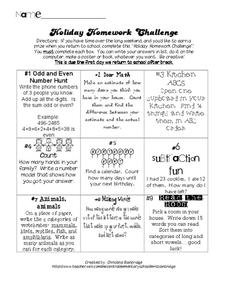Curated OER
Oceanography: Ocean Market
Sstudents identify consumer goods obtained from the oceans. They classify the items and calculate the cost of buying these goods. After taking a simulated sea shopping spree, they tally the cost of the items purchased. They conclude the...
Curated OER
Respiratory, Circulatory, and Urogenital Systems in the Rat
Here is a lesson which describes a lab activity in which a rat is dissected, and its heart is studied. The lesson has ample background information about three of the rats internal systems, and excellent lab sheets that support the...
Out of Africa Wildlife Park
A Thematic Learning Guide to Lions
Written as an accompaniment to a field trip to the Out of Africa Wildlife Park in Arizona, this is an interdisciplinary, themed lesson on lions. Even if you cannot take your upper-elementary kids to this attraction, there are a few...
Curated OER
Woodland Math Facts
In this Woodland math facts worksheet, students study and examine woodland weights of trees and shrubs, explore invertebrates and draw a bar chart to chart their findings.
Curated OER
The Schoolyard Safari
Learners engage in a lesson to find out more information about insects. They collect and observe different insects found on school property. They research the insects once they have been classified. Also a video is used to create a...
Curated OER
Holiday Homework Challenge
In this holiday homework challenge worksheet, students participate in completing nine mini homework assignments to receive a prize when they return to school after the long holiday break.
Curated OER
Science and Math Lab (Students Look at Symmetry in Nature)
Learners study patterns. In this symmetry in nature instructional activity, students examine objects to determine what type of symmetry they have. They work in small groups to rotate through stations that have objects for them to study.
Other popular searches
- Invertebrates and Vertebrates
- Life Science Vertebrates
- Five Classes of Vertebrates
- Invertebrates Vertebrates
- Vertebrates an Invertebrates
- Vertebrate and Invertebrates
- Vertebrate Zoology
- Characteristics of Vertebrates
- Invertebrates + Vertebrates
- Vertebrate Animals
- Vertebrate Dioramas
- Vertebrate Classification








